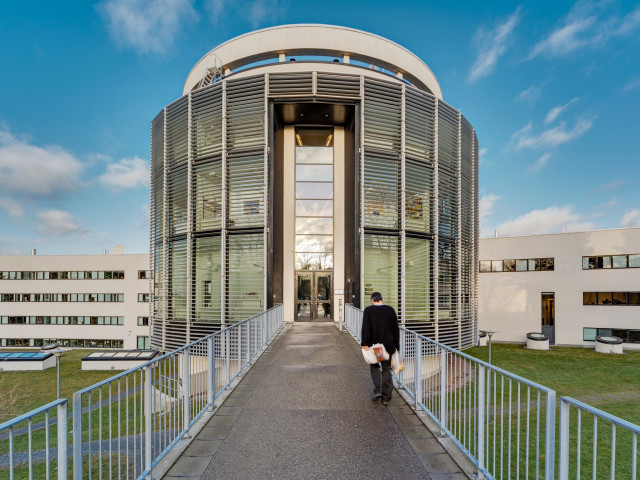- Irreversibility and the second law of thermodynamics.
- Brownian motion, random walks, the Langevin equation, the Fokker-Planck equation.
- Stochastic processes in physics, master equations, one-step processes.
- The Boltzmann equation, the H-theorem and irreversibility, conservation laws and hydrodynamics.
- Open quantum systems and the Lindblad equation.
- Quantum thermalization, quantum quenching, random matrix theory, the eigenstate thermalization hypothesis (ETH).
SI2520 Nonequilibrium Statistical Mechanics 7.5 credits

Nonequilibrium situations are far more common in nature than equilibrium ones. This course gives an introduction to the common ideas and different approaches for studying systems in statistical mechanics that are not in equilibrium, i.e.- with a time dependence in the description of the system. We begin with a review of the origin of irreversibility and the second law of thermodynamics, which are at the foundations of equilibrium statistical mechanics. Then various different techniques for studying non-equilibrium situations follows, which treat the problem on different levels of detail. The main part of the course considers effective descriptions in terms of stochastic processes, closely related to simple random walk problems. We also discuss the Boltzmann equation, which provides a microscopic framework for studying transport in dilute systems, and leads up to coarse-grained hydrodynamic descriptions on longer length scales. Finally, we discuss the linear regime close to equilibrium, where it is possible to obtain the linear response of the system from its equilibrium fluctuations, via the fluctuation-dissipation theorem.
Information per course offering
Choose semester and course offering to see current information and more about the course, such as course syllabus, study period, and application information.
Information for Spring 2026 Start 13 Jan 2026 programme students
- Course location
AlbaNova
- Duration
- 13 Jan 2026 - 13 Mar 2026
- Periods
Spring 2026: P3 (7.5 hp)
- Pace of study
50%
- Application code
61131
- Form of study
Normal Daytime
- Language of instruction
English
- Course memo
- Course memo is not published
- Number of places
Places are not limited
- Target group
- No information inserted
- Planned modular schedule
- [object Object]
- Schedule
Contact
Course syllabus as PDF
Please note: all information from the Course syllabus is available on this page in an accessible format.
Course syllabus SI2520 (Spring 2026–)Content and learning outcomes
Course contents
Intended learning outcomes
After the course you shall
- have a broad overview of concepts, methods and approaches within non-equilibrium statistical mechanics.
- be able to model new physical situations using the methods exemplified in the course.
- be able to generalize and apply the methods to new problems.
- have gained insights into more advanced methods which touch upon modern research.
Literature and preparations
Specific prerequisites
English B / English 6
Recommended prerequisites
Introductory statistical physics and quantum mechanics.
Literature
Examination and completion
Grading scale
Examination
- TEN1 - Examination, 7.5 credits, grading scale: A, B, C, D, E, FX, F
Based on recommendation from KTH’s coordinator for disabilities, the examiner will decide how to adapt an examination for students with documented disability.
The examiner may apply another examination format when re-examining individual students.
If the course is discontinued, students may request to be examined during the following two academic years.
Other requirements for final grade
The examination consists of written assignments, where the students' proposed written solutions are presented orally to the examiner.
Examiner
Ethical approach
- All members of a group are responsible for the group's work.
- In any assessment, every student shall honestly disclose any help received and sources used.
- In an oral assessment, every student shall be able to present and answer questions about the entire assignment and solution.
Further information
Course room in Canvas
Offered by
Main field of study
Education cycle
Supplementary information
Reading course if there are few participants.